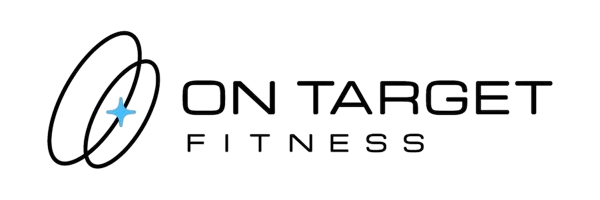Can a Wearable Help You Get Fit?
Today, I want to talk about the technological revolution that is “wearables”. What are wearable devices? It’s any apple watch, smart watch, smart ring, gps watch, fitbit, or whoop strap type device that tracks things like steps, heart rate, heart rate variability, sleep, or overall activity. Whether you want strength, longevity, or weight loss, these devices can be part of the overall picture, along with working with an expert personal trainer ; )
This article isn’t a full throated endorsement of the technology and you won’t see any links to buy a particular model. You will see my notes from 3 months of wearing a smart watch, my thoughts on where it’s helpful, and where it could be harmful. Overall I’m a pretty low tech person and I prefer to cut tech that I don’t think is actually helping me.
That said, I started using a Garmin Forerunner 245. I was most interested in its sleep tracking and pulse oximeter. Other things it tracks that I look at are heart rate variability (HVR), body stress, daily steps, and overall calories burned.
Here are my likes:
Recovery/lack of recovery. Between the body battery, stress scale, and sleep measurements I can really see where I am at physiologically. If I am not fully recovered, I can go a little easier on my workout. If I’m fully recovered, it’s time to charge forward! Interestingly this also gave me an early warning that I was sick a couple months ago. My watch buzzed, said I was unusually stressed, so I headed home to work from home the rest of the day. The next day, I tested positive for COVID. Because it had a good sense of my normal resting heart rate, it could see that my body was fighting something off.
Heart rate variability > only measuring HR during your workout. With heart rate variability (HRV) my watch is measuring changes in my heart rate all day, not just during the workout like traditional HR workout straps. This has a ton of advantages. First, the measurements during the workout are more accurate. Second, if you’re trying to burn more calories, overall calorie burn is more important than only looking at calories burned during your workout. If you only measure calories burned during the workout, you will end up thinking more cardio is the way to go. If you track your HRV across your whole day, you will see a VERY different picture. I typically burn 300-500 MORE calories on my strength days than on my cardio days. That is a massive difference!
Sleep. I have periods where I struggle with insomnia or low sleep quality. With my watch tracking my sleep quality I can more clearly see what things affect my sleep quality and what things don’t. Alcohol is not my friend if I want to get quality sleep. Neither is junk food. It doesn’t mean I never have those things but it does mean that I am strategic about when I indulge in those things, because I know my sleep won’t be as good.
Steps. Compared to all the other high speed metrics, this one is easy to miss but I think it’s a good one. I shoot for 10k steps per day and most days I hit it. Measuring steps is a simple way to keep you honest about your overall activity level. As enthusiastic as I am about working out, a one hour workout followed by an otherwise completely inactive day is likely not going to cut it. Measuring the steps keeps me honest. If I’m short a few, that probably means it’s time to take Penny for another quick walk. Wins across the board!
Your health is now like a game. Rather than compulsively checking other stuff on my phone, I’m looking at my numbers to see how I am doing. It’s like a little game and unlike candy crush, it’s actually good for me. If you’re in a relationship, this is something that you can do together. This was actually my inspiration to get one. A friend of mine and his wife were doing an awesome job taking care of themselves, checking in with each other, and working together while both in grad school and raising their 2 year old daughter. Making this little game something they did together seemed to be a nice part of the virtuous cycles they were in.
Here are my dislikes:
Watch battery. I now have another device I have to remember to charge. It lasts about a week so it isn’t a big deal but it’s annoying if you are a grumpy old man like me. They do make newer/nicer models that last longer than this now.
Analysis paralysis. The numbers are all estimates. If you have a tendency to over analyze or obsess, this might not be the move for you. Instead, focus on how you feel, your energy level all day, the weights you’re now able to move in the gym that you couldn’t previously, etc. The data is moderately helpful but if you shouldn’t be living or dying by numbers on a screen.
Constant Notifications. We are already so distracted by our phones. We don’t need to compound this by also having a watch that constantly buzzes, beeps, and interrupts your thoughts at random. I turned all of these notifications off.
My conclusions: Do you need one? Nope. Can it be helpful? Yes. Can it be detrimental? Potentially. Overall I am happy with my wearable but I like to alternate times when I wear it and times when I wear a simple mechanical watch.
Our first location serves Portsmouth, Kittery, and the broader Seacoast community. Our new location serves Kingston and the broader southern New Hampshire community. We help people strength train, walk daily, and eat real food.



